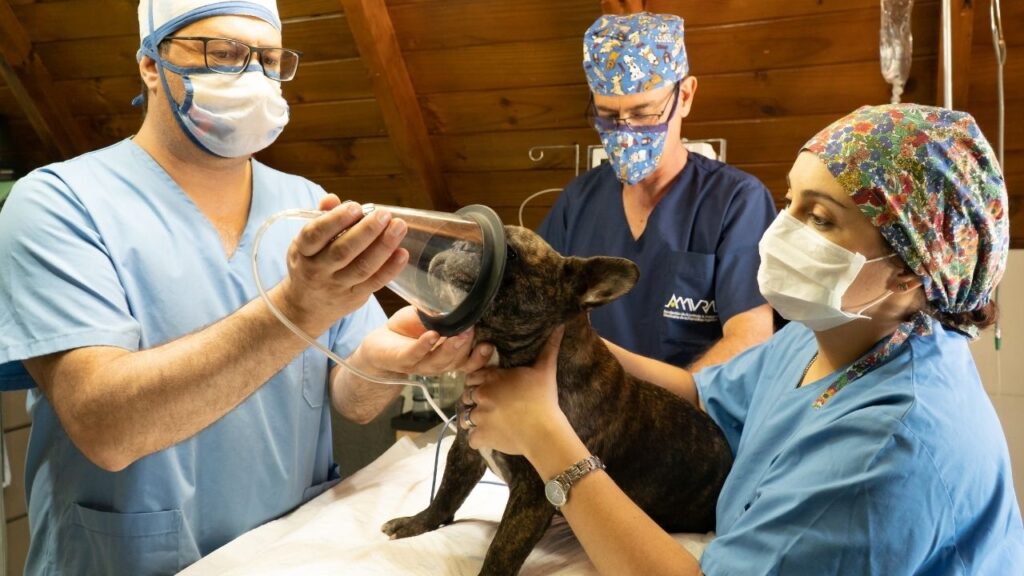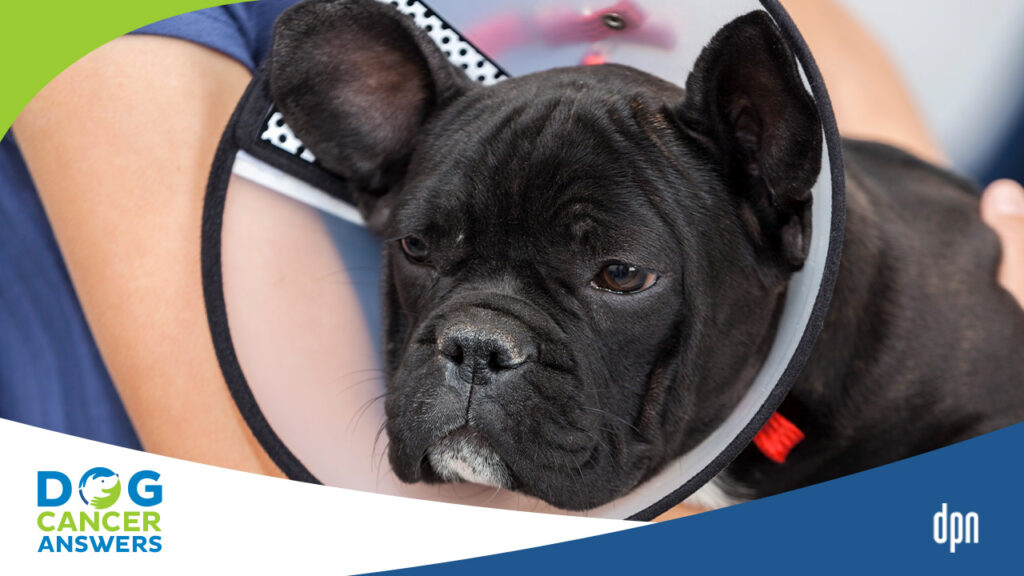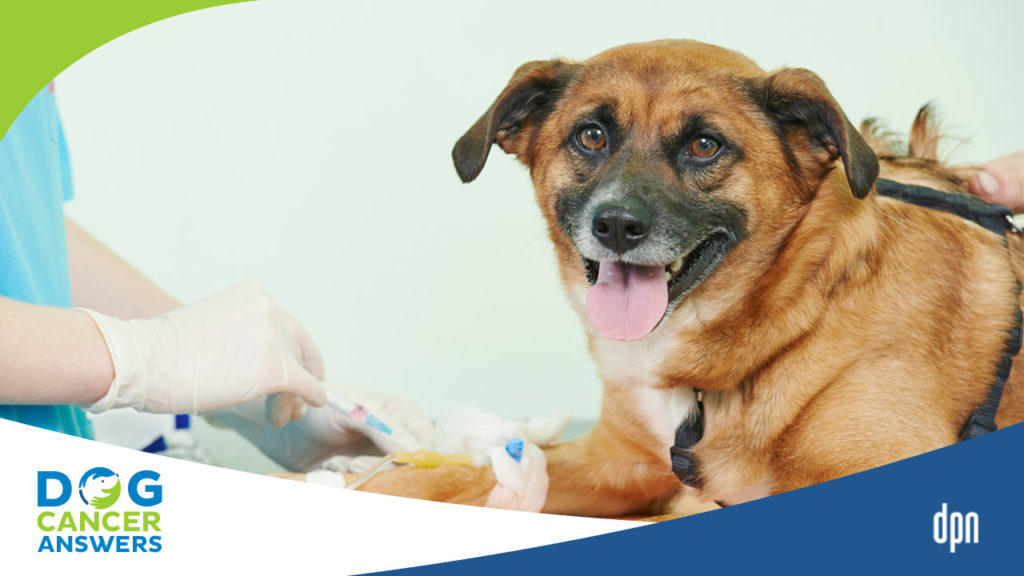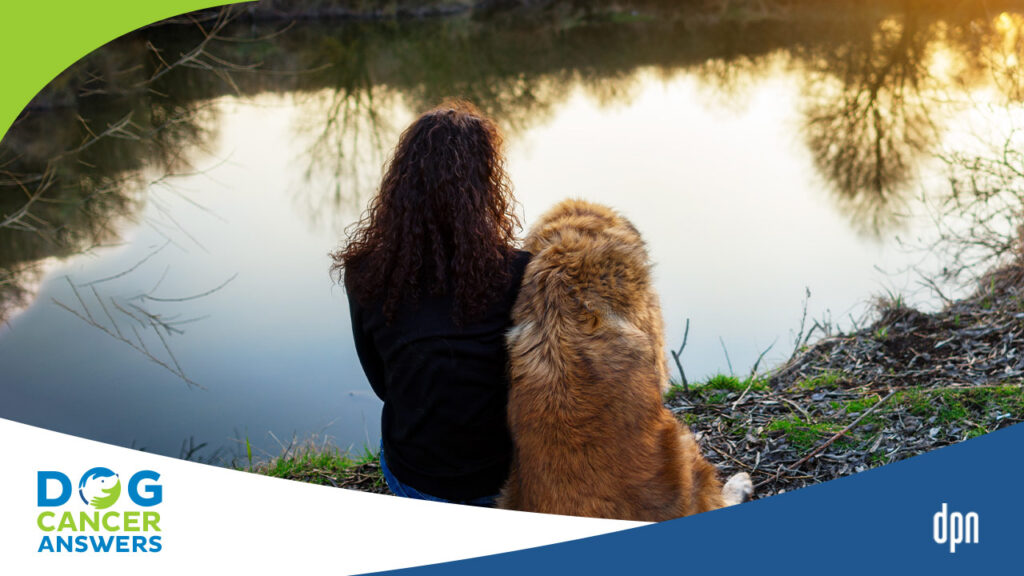EPISODE 49 | RELEASED April 28, 2020
What Age Is a Dog Too Old for Surgery? │ Dr. Nancy Reese Q&A
Are we right to assume that older dogs shouldn’t go through surgery? Is it ever right to put them under? Dr. Nancy Reese has an answer for Louise’s question about her senior Maltese.
SHOW NOTES
Are we right to assume that older dogs shouldn’t go through surgery? Is it ever right to put them under? Dr. Nancy Reese has an answer for Louise’s Listener Line question about her senior Maltese. In the process, she also reveals her own internal struggle about getting surgery for her own senior dog. This episode is proof that even veterinarians struggle with this question.
>> Dr. Nancy Reese: It’s never easy to decide what’s the best option in that kind of situation.
>> Announcer: Welcome to Dog Cancer Answers where we help you help your dog with cancer. Here’s your host, James Jacobson.
>> James Jacobson: Welcome to Dog Cancer Answers. Today, we look at a question that a lot of dog lovers have to face: is my dog too old for surgery?
It’s a tough question because the answer isn’t always cut and dried. It’s really on a case-by-case basis. So we turned to Dr. Nancy Reese to help us look at the calculations that you might have to make about your dogs cause they approach the question of surgery.
This is a Question & Answer episode where we take a listener question and pose it to one of our Full Spectrum veterinarians. If you have a question that you’d like to ask for a future episode, call our Listener Line at (808) 868-3200. And by the way, if you haven’t yet subscribed to our podcast, this is a good time to hit the subscribe button. And don’t forget to tell a friend, and your veterinarian, about this show.
It’s how we grow and it’s the best way that you can help support us as we help support lots of dog lovers all over through what can be a very difficult time.
Now let’s listen to Louise ask her question about her Maltese, and then we’ll discuss the issues with Dr. Nancy. Here’s Louise.
>> Louise: Hi, my name is Louise and I have a question on my dog. I have a Maltese, he’s about 13 going on 14 and he was just diagnosed with an ultrasound that got either a benign hepatoma liver tumor or a adenocarcinoma, and they can’t do a biopsy because they said the tumor is tucked under the ribs so much. It’s a three by three tumor. I’m not sure how long he’s had it.
He has liver disease, you know, and he’s on Denamarin and he’s on all the great stuff, but I just don’t know if I could do surgery at this age. That’s really my question and I’m looking for some thoughts on this and thank you. Have a great day.
>> James Jacobson: Surgery on a senior dog, a senior Maltese – Dr. Nancy Reese, what do you think?
>> Dr. Nancy Reese: Well, it’s always a tough thing. I have to say, I’m sorry that you have to make this decision at all ’cause it’s never easy to decide what’s the best option in that kind of situation. And on a personal note, I’m facing something somewhat similar with my own dog, so I can totally appreciate how difficult weighing the pros and cons can be.
Secondly, I do have to say that legally I can’t give specific advice about this case because I don’t have the veterinary client patient relationship, meaning that I haven’t personally examined the dog to be able to give you the best advice in this situation. But I can say things about liver tumors in general that might apply to your situation.
So because the veterinary team has mentioned that tumor isn’t reachable by biopsy first, unfortunately that means that surgery, with removal of all or part of it, and submission to a pathologist, is really the only way to tell what type of tumor it is, and therefore what additional treatment might be available.
And that’s frustrating, because we’d like to know for sure whether surgery is required or not, but sometimes we don’t have those answers until after we go in and and take part of the mass, or the whole thing.
The good part would be that if it’s the more benign type of growth, like the hepatoma that was mentioned, surgery could be curative, meaning that the growth would be gone and would not be expected to come back, and no further treatment would be needed.
If the tumor turned out not to be benign, but was still removable, then surgery could still be considered successful, but there might be additional treatment needed after the surgery.
By the way, the liver has an amazing ability to regenerate, so it can recover from surgery quite well, even when a large portion is removed. So that’s kind of a neat thing about the liver, but there’s definitely a few potential complications of surgery.
There could be excessive bleeding, or they might go in and find out that the tumor would not be fully removable. If it were too invasive or the surgeons felt that they couldn’t get the whole mass out, then it might just be a matter of biopsying and closing things up. But that might still give some information about if there’s other medical therapy that could help.
Of course, that might mean chemotherapy, and that’s a whole ‘nother topic to consider.
Some of the factors to consider: in general dogs with one tumor do better than if there are multiple tumors found at the time of surgery. Dogs that are otherwise healthy at the time of surgery do better than dogs that are feeling sick from the tumor at the time.
I’m always looking for studies, so I think I did see a study that said overall about 93% of dogs survived their liver tumor surgery and were discharged from the hospital.
Now, we always worry about older dogs and anesthesia, but we find that age itself is not the most important risk factor for anesthesia.
It really has to do with how otherwise healthy the dog is.
So an active, not too thin, older dog with no other comorbidities or other health issues — that may be a better candidate for surgery than a younger dog with say, heart disease or, or even diabetes.
The other consideration, and we always hate to think of it in these terms, but what’s the overall life expectancy of a dog. For Malteses, I saw reports of 12 to 15 years.
But that doesn’t say that your dog couldn’t live a lot longer than that. That’s just the average across many dogs.
I think in the end it comes down to: both decisions have merits. There’s risks to doing surgery. There’s also risks for letting the tumor progress, cause even benign tumors can start to cause some problems.
But, it comes down to a lot of times what your gut tells you, cause you have to feel good about your decision either way.
So when you make it, you really want to feel like you made the best decision possible for your dog, and feel good about it and do all of the things you can to help support her system and, you know, keep her as happy as possible for the time — that hopefully is a long time — that you have left with her.
And you know, you want to keep her tail wagging and keep letting her put a smile on your face.
>> James Jacobson: So, let me ask you, and I think that’s all really interesting points, especially the point that it’s not necessarily the age of the dog, but the overall health condition.
But you mentioned earlier, as you’re answering this question, that you’re actually doing this calculation yourself with your own dog. Do you mind sharing with our listeners that process?
>> Dr. Nancy Reese: Yeah, I’ve got a 13 year old golden retriever, and because I’m a veterinarian and paranoid about cancer and golden retrievers, I’ve been having her abdomen ultrasounded every – it started out every few months and now I’m down to pretty much every month — and we found some spleen nodules on her that we’ve biopsied twice. And they’ve come back, at least in the places that were biopsied, they came back as benign type of thing.
But I’m still have that concern that she’s a golden retriever. They’re very prone to splenic cancer, and do I just remove it while she’s in good shape now, rather than waiting another six months when she might not be in as good condition to go through surgery like that.
So it’s, it’s been a very up and down process and it honestly, it changes day to day.
>> James Jacobson: So as you walk through this yourself, and you advise your clients and this caller, what are some of the calculations that you factor?
>> Dr. Nancy Reese: I think probably the biggest one is that right now she’s in really good shape. So if I’m going to do it, I need to do it now versus waiting for, like I said, maybe six months, cause she’s got a little bit of weakness in her hind end.
But the choice is, I don’t want to wait and then wait till it’s too late to do it. So I’ve just got to decide, if I’m going to pursue that way, then do it relatively quickly.
If I’m not, then accept the situation and do all those supportive things, you know, for her, I do the mushroom extracts and things like that, all the things that seem to have some benefit for actual spleen cancer.
>> James Jacobson: That’s a calculation too many dog owners have to go through, I know that personally. I had to do that with one of my senior Maltese, Kanga, who Dr. Dressler did an amazing two-hour surgery on over a year ago. And, uh, I saw some horrific pictures of it and I realized, my God, I, it’s, it’s pretty, it’s pretty amazing around the uterine, a basically a full hysterectomy.
So I definitely understand this process and it is a tough calculation and I think a lot of it has to do with the connection and the competency — is that fair? — of the surgeon who’s going to be doing it?
>> Dr. Nancy Reese: Absolutely. That definitely has a factor in it. My biggest, uh, decision for my own dog is deciding that because my clinic is pretty much her second home, I don’t think I want to have it done there.
I would rather take her somewhere else, which really sounds weird, but I’d rather take her somewhere else, so that any negative connotations — I mean, she started giving me bad looks because I gave her a bath at work — so I really don’t want to have her have a major surgery and have her not want to come back to work with me.
>> James Jacobson: Yeah, I can relate to that. The dogs definitely make those associations.
Dr. Nancy Reese, thank you so much. I think that’s good information for our caller, and in general, if you are looking at doing surgery on a senior dog, a lot of considerations to take into account. Thanks for being with us today.
>> Dr. Nancy Reese: Oh, thank you for having me.
>> James Jacobson: I want to thank Dr. Nancy Reese for that thoughtful and personal answer to Louise’s question. And I also want to thank Louise for asking it. Many of us have older dogs, and since cancer tends to happen to older dogs, age is always something we have in the back of our minds.
So the bottom line on surgery for senior dogs seems to be not so much how old is your dog, or how old is your dog likely to live on on average. But rather: how is your dog’s overall health.
Is your dog already dealing with a lot of health issues? And surgery might be the last thing they needs? Or is your dog otherwise still bouncing around and you and your vet think “this dog can handle it.”
The calculation is tough, but it is doable. I’ve been there personally.
We’ve put some links in the show notes for this episode to articles that might help you to make the right decision, so be sure to check those out.
Hey, do you have a question like Louise did? Well just call us. One of our veterinarians can answer it on a future episode of Dog Cancer Answers. Please call our listener line at 808-868-3200, that’s 808-868-3200, or visit our website at DogCancerAnswers.com.
And on that website you can also listen to or download our back catalog. It’s the best way to help give you the information you need to help optimize your dog’s life quality and longevity.
? ?
We’d also like to thank our sponsor: The Dog Cancer Survival Guide BOOK by Demian Dressler and Susan Ettinger. This book is available wherever fine books are sold both online and in physical bookstores. And if you would like to help support this podcast, get it right away direct from the publisher. You can get either the paperback with free shipping anywhere in the United States or the ebook for instant download and the ebook is just $9.95. To get either the ebook or the paperback go to this website: DogCancerBook.com. And because you’re a listener to this show, if you use the promo code “podcast”, you can save 10%. The website again: DogCancerBook.com. Use the promo code “podcast” for 10% off. That is www.DogCancerBook.com.
That about wraps it up for us, I would like to thank Dr. Nancy Reese for being our guest today.
Until next time, I am James Jacobson. From all of us here at Dog Cancer Answers and Dog Podcast Network, I wish you and your dog a warm Aloha.
>> Announcer: Thank you for listening to Dog Cancer Answers. If you’d like to connect, please visit our website at DogCancerAnswers.com or call our Listener Line at 808-868-3200.
And here’s a friendly reminder that you probably already know: this podcast is provided for informational and educational purposes only. It’s not meant to take the place of the advice you receive from your dog’s veterinarian. Only veterinarians who examine your dog can give you veterinary advice or diagnose your dog’s medical condition. Your reliance on the information you hear on this podcast is solely at your own risk. If your dog has a specific health problem, contact your veterinarian.
Also, please keep in mind that veterinary information can change rapidly. Therefore, some information may be out of date.
Dog Cancer Answers is a presentation of Maui Media in association with Dog Podcast Network.
Hosted By
SUBSCRIBE ON YOUR FAVORITE PLATFORM
Topics
Editor's Picks
CATEGORY











